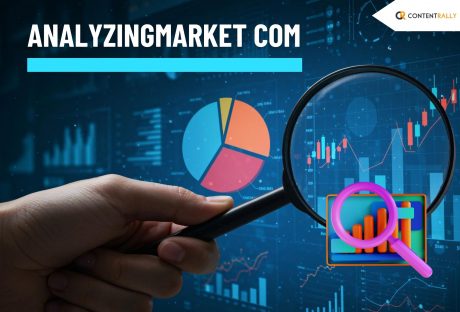With the global pandemic of the year 2020 due to the onset of the coronavirus, many people lost their high-paying jobs. With large-scale unemployment, people worldwide started reconsidering the notion of the “stable” job. This was one of the main reasons that they started their own business.
Have you ever wondered about building an organization? About starting your own business? If this thought has ever crossed your mind, you may have thought about becoming an entrepreneur.
Heard about the term but didn’t quite know what it is? Then, you have come to the right place. In this article, I will guide you on the concept of entrepreneurship and the types and characteristics of the same. So if you want to know more, stick till the end.
Read More: How Many Types Of Entrepreneurs Are There
What Is Entrepreneurship?

Entrepreneurship is the process by which an individual takes the risk to start their own business and run it successfully.
You can consider it to be one of the essential points in society. It is one of those resources that economists consider integral to production. However, economists have not consistently defined the exact definition of “entrepreneurship.”
However, you can connect it to the natural resources, land, labor, and the capital that we invest in, which has the possibility of generating profit. Every nation values the practice of entrepreneurship because it makes the country stand out more in the global marketplace.
Who Is An Entrepreneur?

Do you think you have the ability to create and run your own business successfully? And also dare to bear the risk of failure?
Well, you might just be capable of being an entrepreneur.
While the process of starting your venture and running a business of your own is called entrepreneurship, the one who does that is called an entrepreneur.
In order to become an entrepreneur, you must have the desire to start a new venture and administer it to run successfully. But, along with that, you also need to keep in mind that you might have to face failures and even incur losses a few times.
In other words, a person who is determined to open a startup and run it successfully while dealing with all the risks of losses is called an entrepreneur.
Entrepreneurs have a significant role to play in the economy. They use their skills and business acumen to initiate their journey and bring success to their business and the market in general.
Related: Business Tips For Beginner Entrepreneurs
Entrepreneurship: Characteristics
There are a specific set of skills that one needs to have if one wants to become an entrepreneur. Some of them are below:
1. Risk-taker

Because it takes a lot of courage to start an entrepreneurial journey, the essential characteristic for a person to have if they want to become an entrepreneur is the will to take the risk.
Entrepreneurs are never too scared of taking risks. They jump into the field knowing the fact that they might incur losses. However, they also know that risk is just an opportunity to learn something new about the market, their business, and themselves.
2. Networking

Building and managing the relationships that one business owner has with other professionals help them grow the business. Therefore, one of the most desirable skills for entrepreneurs is to be able to network.
It can open up many future opportunities and support the entrepreneur in building a brand with a solid foundation.
It also allows entrepreneurs to meet other like-minded professionals and build future collaborations and teams while staying updated with industry trends.
3. Communication

It is crucial to communicate with your clients and equally essential to communicate with your employees.
Business owners or entrepreneurs require excellent communication skills through verbal communication or messages and reports or emails about the project.
This makes sure that the work or the project is executed effectively and reduces the chances of miscommunication.
4. Critical Thinking

An entrepreneur should be able to look through the data and information present at hand and arrive at a rational conclusion. This benefits the business.
The skill of thinking about a solution critically is essential. It helps business owners connect with ideas logically, scrutinize the information at hand, find if there are any inconsistencies at work, and solve complex issues.
Know More: Large Company Entrepreneurship: Definition, Pros, Cons
5. Creative Thinking

Being creative is a gift that no one can take from you. So if you want to be an entrepreneur, you should make sure that you can think creatively.
We can often consider it to be the backbone of innovation. It is one of the reasons that forces employees to think differently. This makes sure that the business grows innovatively.
6. Leadership Skills

One of the most important things an entrepreneur needs is the skill to be an excellent leader.
They should be able to inspire their colleagues or those working for them and empower the workforce.
Frequently Asked Questions (FAQs):
Entrepreneurship is the process through which an individual starts or creates their own business and can run it successfully.
When it comes to the different types of entrepreneurship, there are many. Some are large company entrepreneurship, social entrepreneurship, startup entrepreneurship, and small business entrepreneurship.
There are many reasons why entrepreneurship is essential. It increases the standard of living, encourages creativity, supports innovation, and offers employment.
And That’s A Wrap!
With the rise of unemployment in many parts of the world due to the pandemic of 2020, many people started rethinking the idea of a stable job.
This was one of the reasons why most of them began to open businesses. They started their entrepreneurial journey, no matter how big or small they were.
The ability to run a business while dealing with the possibility of incurring losses is essential for an entrepreneur. While keeping that in mind, several characteristics are necessary for becoming an entrepreneur.
Some of them are the ability to take risks, communicate, and other leadership skills. So, if you think you have any of the characteristics stated above to be an entrepreneur, it might be your turn to try and set out on a new venture!
Read More:
- How To Become An Entrepreneur? A Brief Guide
- Margin Trading Tips & Strategies For Beginners
- Who Is An Intrapreneur? Definition, Characteristics, Pros/Cons























